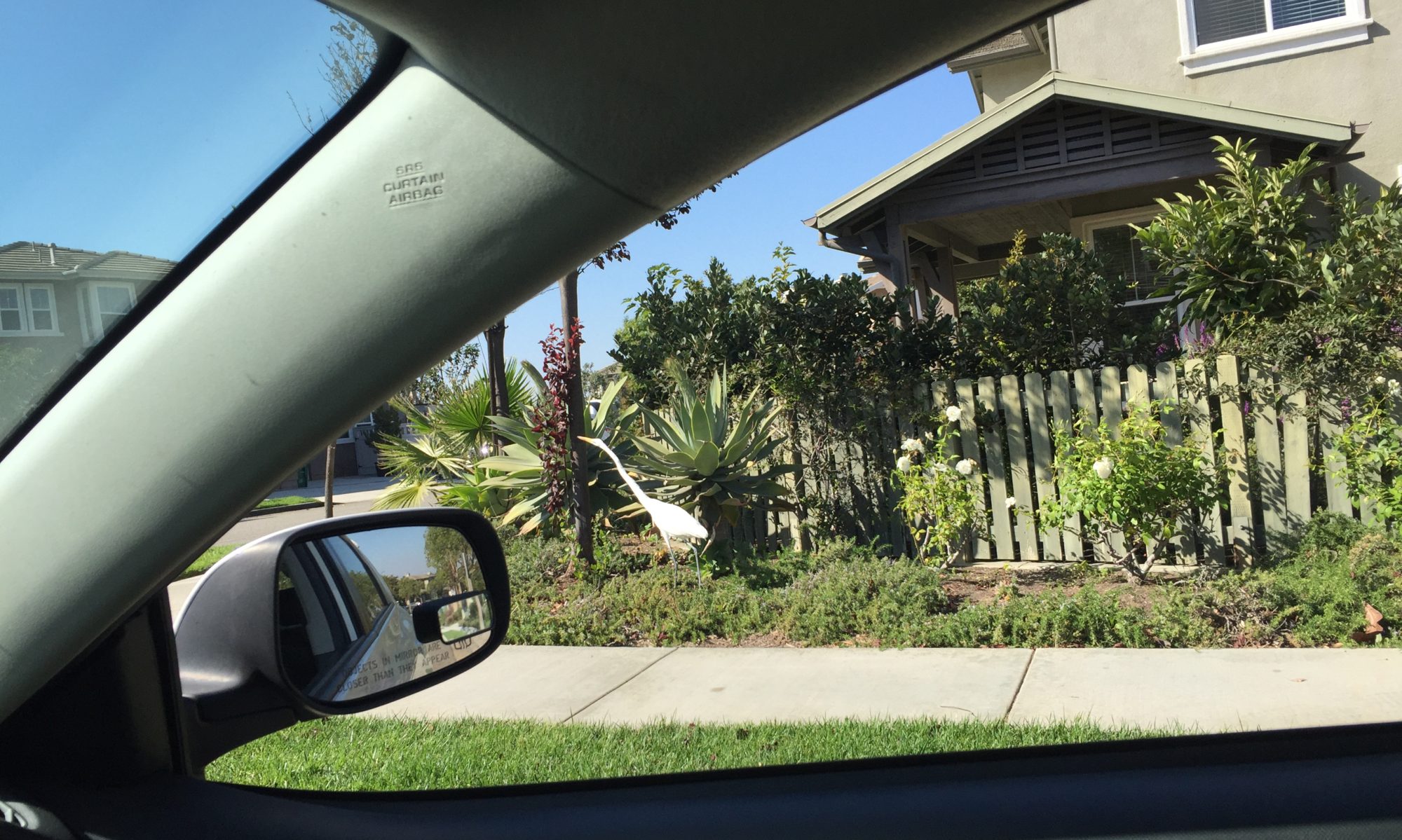2 am. Moonlight. Train stopped
in the middle of a field, cold city lights
flickering on the far brink of sight.
As if someone has sunk so deep into dream
she’ll never remember she was there
once she gets back to her room.
Or somewhere someone has slipped so deep
into sickness that his days all become a flickering
swarm of points scattered thin on the brink of sight.
The train stands utterly still.
2 am. Stark moonlight. Few stars.
***
From Tomas Tranströmer, Spår
På natten klockan två: månsken. Tåget har stannat
mitt ute på slätten. Långt borta ljuspunkter i en stad,
flimrande kallt vid synranden.
Som när en människa gått in i en dröm så djupt
att hon aldrig ska minnas att hon var där
när hon återvänder till sitt rum.
Och som när någon gått in i en sjukdom så djupt
att allt som var hans dagar blir några flimrande punkter,
en svärm, kall och ringa vid synranden.
Tåget står fullkomligt stilla,
Klockan två: starkt månsken, få stjärnor.
***
I don’t have much use for the Nobel Prize in Literature, so when Tomas Tranströmer won it a few years ago, I took no more than a cursory look at his poems. What brought me back was the Nordic noir TV series Wallander in its subtitled Swedish version. The more I attended to the Swedish the more I was lulled by waves of cognitive dissonance, as if I were hearing English coming up out of what the Maya call a cenote, a well from which occult messages — well, they well up.
So I tracked down some Swedish textbooks and ordered a bilingual Kindle edition of twentieth-century poetry, in which I found this poem, which was speaking to me as I decrypted it word by word. It felt as if I were plumbing depths. A key word in the poem is in fact djupt, deep.
Deftly, Tranströmer equates depth with distance, referring in the same breath to djupt and to synranden, the rim or orbit of sight, the horizon. We are lucky in English to have brink to join the two ideas.
Others have translated spår as tracks, because of the train, or maybe the sense of horizonality we get from English spar. But spår can also mean trace, as in German Spur. And tracks can also be traces.
I am sure that professional translators will find flaws in my version, which fell together in front of my eyes within an hour or two of work, work which felt like inspiration, and therefore was not work.
But remember: as far as I am concerned, a poetic translation is a poem about another poem. Here, as whenever practical, I leave the original out of courtesy to the source poet, and as a trace of my own poem’s origins, tracks back to them.
In 1969, immigration to Sweden was one of the few options I had faced to avoid conscription into the US military. I chose otherwise. Maybe, just maybe, that was a mistake.
